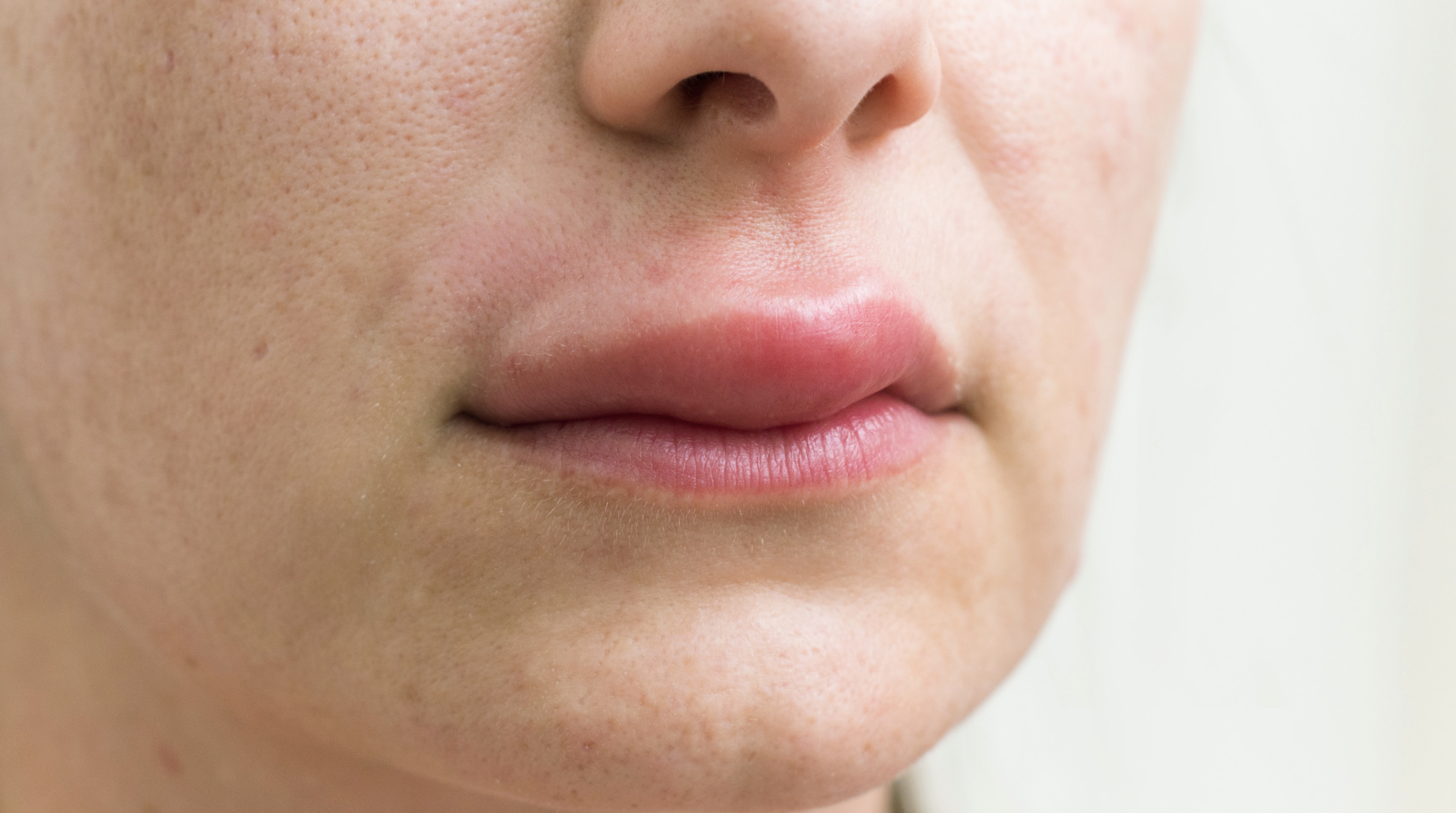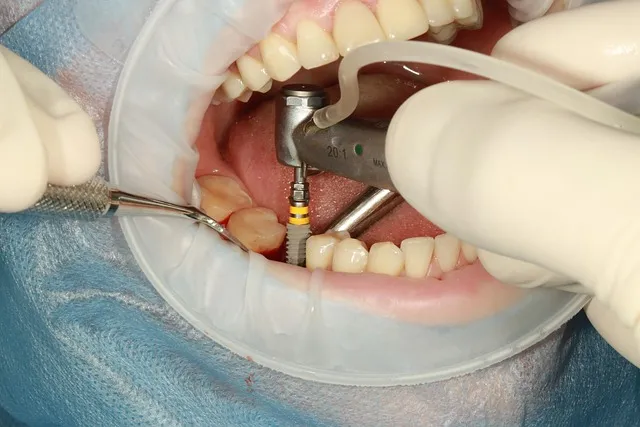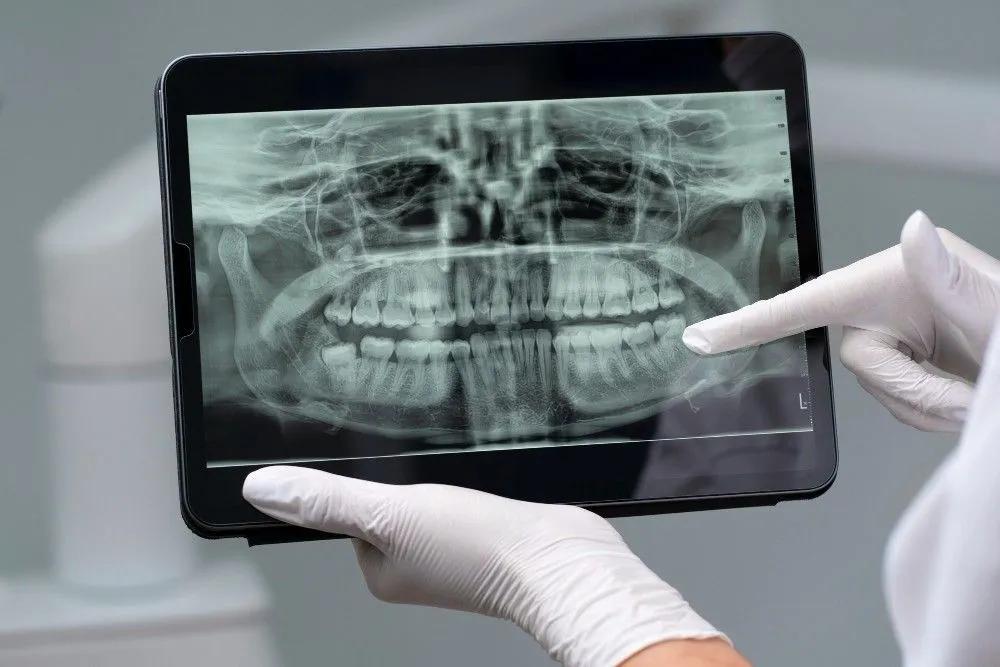We all enjoy the rich flavor onions bring to our meals, whether in curries, salads, or pickles. They’re not only delicious but also healthy, packed with fiber, folic acid, and vitamins B and C.
But there’s one downside: the lingering odor they leave behind. That stubborn onion breath can feel embarrassing and hard to get rid of, whether after lunch, dinner, or even a quick snack. So, if you’re wondering how to get rid of onion breath, this guide shares effective, quick, and natural remedies to freshen your breath and boost your confidence. Let’s dive in!
How to Get Rid of Onion Breath: 17 Effective Remedies
Nobody likes onion breath because it can be quite unpleasant. Having fresh breath can help you make a good impression and feel more confident.
Consider these easy and simple ways to eliminate onion breath:
1. Drink Green Tea
- The strong antioxidants, like polyphenols in green tea, can help neutralize the sulfurous chemicals found in raw onions that cause a bad odor.
The catechins in onions also assist in fighting off the bacteria in the mouth that contribute to bad smell.
How to use: Just sip one hot cup of green tea after eating your food. You can also swish the green tea solution in the mouth for 10-15 seconds and then spit it out.
How to use: Just sip one hot cup of green tea after eating your food.
2. Rinse with Lemon water
The antibacterial properties of citric acid in lemons can help kill bacteria that cause bad breath.
Also, it neutralises the sulfur compounds found in onions, which also contribute to a bad odor.
What to do: Mix one tablespoon of lemon juice in one cup of water and rinse your mouth with it 2-3 times a day.
Note: Be careful not to let the citric acid coat your teeth too much. Its high acidity can potentially harm your teeth and lead to tooth sensitivity.
3. Take a Cardamom Chew
The antimicrobial effect of cineole found in cardamom can destroy mouth bacteria that cause bad breath.
Also, the strong and aromatic smell of cardamom helps mask the onion's odor.
How to use: Chew the cardamom pod after eating your food for a few minutes.
4. Use Apple Cider Vinegar (ACV)
The antibacterial effects of acetic acid in ACV can aid in killing mouth bacteria and reducing sulfur compounds found in onions that cause bad breath.
In addition, its acidity can balance the alkaline environment (created by an onion) in the mouth, which can also be a contributing factor.
How to use: Mix one tablespoon of ACV in water and swish it around your mouth for 10-15 seconds and then spit it out. Avoid swallowing it, as it can irritate.
5. Eat an apple Daily
The natural enzymes in apples help break down onions' sulfur compounds, which are the primary cause of bad odor.
Chewing an apple can trigger the release of saliva, which can help get rid of bacteria, thus reducing smell.
Eat an apple just after consuming onions.
6. Use Baking Soda Rinse
Baking soda can help neutralize the bacteria and acids that are responsible for bad onion breath.
Additionally, being alkaline in nature, baking soda can help maintain pH levels in the mouth, creating a less favorable environment for bacteria that cause odors.
How to use: Mix 1 teaspoon of baking soda in one cup of warm water, swish the solution around the mouth for 30 seconds, and then spit it out.
7. Drink Some Milk
Milk contains fat that can bind to the sulfur compounds released from onions and neutralize them, decreasing the severity of onion breath.
Research shows that whole milk is much more effective in alleviating foul-smelling breath compared to fat-free milk.
How to use: Sip milk during or after a meal. For better results, have milk along with every bite of food containing onion.
8. Eat Herbal Leaves
Mint and peppermint both contain chlorophyll, which is found to be effective in reducing onion odor significantly and freshening up the breath.
Also, they have mild antiseptic properties that can help alleviate the mouth bacteria that contribute to bad odor.
How to use: Drink peppermint tea, chew fresh mint leaves, or use a peppermint mouthwash.
9. Brush Your Teeth
Brushing the teeth after consuming onion-containing foods can help wash away smell-causing bacteria and food particles.
It can also get rid of plaque, which can contribute to bad breath, leaving the mouth clean and fresh.
Use an electric toothbrush for deep cleaning and floss one time a day.
10. Rinse with Mouthwash
A study reports that chlorine dioxide-containing mouthwash is effective in reducing bad breath.
Chloride dioxide neutralizes the sulfur compounds that are released by the onions, which, in turn, alleviates the bad odor.
How to do: Swish the mouthwash around the mouth for about 30 seconds and then spit it off. Do not swallow it.
11. Use Essential Oils
Essential oils such as peppermint or rosemary contain compounds that can neutralize the sulfur compounds released by onions, the main cause of onion breath.
In addition, these oils have antibacterial properties that aid in killing odor-causing bacteria.
How to use: Mix one drop of essential oil in a teaspoon of carrier oil and swish it around the mouth for 1 to 2 minutes, and then spit it out. Also, you can use it as a mouthwash.
12. Chew Gum
Chewing sugarless gum that contains a minty flavor, such as spearmint and peppermint, can help mask unpleasant odor quickly.
Also, it stimulates the production of saliva, which helps get rid of bacteria and food particles that cause odor.
The American Dental Association states that chewing sugarless gum for about 20 minutes after consuming a meal might also prevent the risk of tooth decay.
13. Pineapple Juice
The ananas, an enzyme found in pineapple, helps break down the debris accumulated in the mouth that causes bad breath.
Also, it consists of neutralizing compounds that balance the sulfur compounds found in onions and are responsible for bad breath.
How to use: Drink a glass of pineapple juice after a meal or chew some fresh slices for 1 or 2 minutes. Avoid sugar in the juice, as it is bad for the teeth.
14. Fennel and Anise Seeds
The antimicrobial effects of fennel and anise seeds help get rid of bacteria in the mouth that contribute to bad breath.
These seeds also release sweet-smelling essential oils that hide the onion odor and leave a fresh smell.
How to use: Chew handfuls of roasted or raw seeds after eating food.
15. Consume Yogurt
The probiotics in yogurt help balance out the bacteria in the mouth, which eliminates odor-causing bacteria.
Also, the natural acids and fats in the yogurt can neutralize the sulfur compounds, which also contribute to onion breath.
How to take: Have plain, unsweetened, and probiotic-rich yogurt.
16. Use a Tongue Cleaner
Using a tongue cleaner can help get rid of odor-causing bacteria (which release volatile sulfur compounds) that thrive and grow on the tongue's back, where toothbrushes can't reach.
Also, they remove the buildup of food debris that gets accumulated on the bumpy surface of the tongue and causes a bad odor.
How to use: Gently scrape from the tongue's back to the front. Continue it until no residue is noticeable on your scraper.
17. Drink Plenty of Water
Drink water after eating your food, which helps get rid of garlic and onion residue between the tongue or from the tongue.
In addition, it triggers the saliva production, removing smell-producing bacteria present in the mouth.
Important Tips:
Cooking onions can reduce the release of sulfur compounds, leading to milder bad breath.
Practicing good oral hygiene every day can prevent bad breath from the mouth.
Also Read: Home Remedies For Bad Breath.
What Doesn’t Work to Eliminate Onion Breath?
Not everything works to eliminate onion breath, which includes:
Chewing gum alone: Minty gums can hide the onion odor for a temporary period. It does not balance the sulfur compounds that are responsible for odor. Once the gum flavor subsides, the smell comes back.
Brushing the teeth once: A single-time teeth brushing removes the food particles from the mouth, but it does not stop the smell that comes from your lungs after consuming onions.
Using alcohol-based mouthwashes: Though they kill bacteria, alcohol in them can cause dryness in the mouth, which reduces the flow of saliva, worsening bad breath over time.
Drinking coffee: Taking coffee after eating a meal can make the mouth dry and lead to a strong, bad odor instead of freshening it.
Drinking plenty of water alone: While staying hydrated helps, water alone can't neutralize the compounds (that cause odor) by itself. It only dilutes those compounds slightly.
Why Do Onions Cause Bad Breath?
The following compounds in onions are responsible for causing bad breath:
Allicin: On getting exposed to air, the substance called alliin converts into allicin, which then changes to many sulfur-containing compounds like allyl methyl sulfide that give onions their smell.
Allyl Methyl Sulfides: These compounds, when released after eating onions, are absorbed into the bloodstream and exhaled through the lungs via breath.
Cysteine Sulfoxides: These sulfuric compounds also cause an unpleasant smell in the breath immediately after you consume onions.
What Other Foods Contribute to Bad Breath?
Along with onions, a few other foods can also cause bad breath. So, be aware of these foods in your diet before you attend an important event:
Garlic
Spicy foods
Dairy products, like cheese
Meat
High-sugar foods
Acidic foods
Canned fish, like tuna
Horseradish
Coffee
Alcoholic beverages
All these foods release sulfur compounds that are the main culprit of a foul odor. On the other hand, alcoholic and caffeinated beverages reduce saliva production, which leads to dry mouth and increased bacterial growth, resulting in worsening of bad breath.
Potential Causes of Persistent Bad Breath
The following are some possible causes of bad breath:
Problems with the nose, throat, ears, and mouth
Gum disease
Periodontitis
Infections like sinus and respiratory infections
Dry mouth
Tonsillitis (inflammation in the tonsils)
Smoking
Excessive alcohol intake
Medical conditions, like diabetes, kidney disease, and liver problems
Can Your Bad Breath Be a Sign of Dental Problems?
Yes, bad breath can be caused by underlying dental issues such as:
Poor Oral Hygiene: No regular brushing and flossing allows the food particles and bacteria to build up and cause bad breath.
Gum Disease: Accumulation of bacteria can lead to infection and inflammation in the gums, causing gum disease like periodontitis and gingivitis. This contributes to bad breath in the mouth.
Cavities: Tooth decay provides a breeding space for bacteria to multiply, which results in the release of foul-smelling byproducts.
Impacted Wisdom Teeth: Trapping bacteria and food particles, these teeth make it challenging to clean the debris and bacteria, resulting in bad breath.
Dry Mouth: Low production of saliva in the mouth can contribute to high bacterial growth, which causes bad breath.
Dentures: They allow the accumulation of bacteria, which can cause a smell if not removed or cleaned properly.
When to See a Doctor?
If you still have bad breath after trying all the natural remedies, consult your dentist. Also, seek immediate medical help if, along with persistent bad breath, you experience the following symptoms, which could indicate underlying dental issues:
Metallic taste
Dry mouth
Bleeding gums
Treatment Options for Bad Breath Odor
The treatment depends on the cause of the breath odor:
Dental Cleaning: If plaque accumulation is the cause, the dentist helps with the cleaning of the teeth. In case of periodontal disease, deep dental cleaning may be the solution.
Address underlying medical conditions: If conditions like kidney disease, gastrointestinal issues, or sinus infections are the cause, treating them can improve breath odor. For dry mouth, the doctor can provide artificial saliva products and suggest drinking a lot of water daily.
How to Prevent Onion Breath?
Here are the tips to prevent bad breath from onions:
1. Cook Onions Differently
Thorough cooking of the onions breaks down sulfur compounds, which are responsible for contributing to a bad odor.
Roasting, slow-cooking, or sauteing the onions eliminates the bad breath-causing potential of onions.
2. Combine Onions with Odor-Fighting Foods
Pair onions with odor-fighting foods, such as parsley, lettuce, or green tea, to help counteract onions' effects and avoid a bad smell.
Have onion-rich meals with yogurt or finish them with some fresh fruits, like apples or berries, to minimize the impact on breath.
3. Set Your Onion Consumption Timing
In case of important social events or meetings, avoid consuming raw onions at least 24 hours beforehand.
Plan to eat onion-rich food when at home, where you can use different strategies to reduce the bad smell of onion.
4. Stay Hydrated
Drink at least 8 glasses of water a day, especially after consuming onions or onion-rich meals, to quickly flush out sulfur-containing compounds from the body.
Also, it helps maintain the production of saliva, which is the natural cleaning mechanism of the mouth.
5. Follow Good Oral Hygiene
Brush your teeth and do tongue scraping two times a day to prevent the accumulation of onion residue that can release sulfur compounds and cause bad odor.
In addition, always go for dental check-ups to prevent the risk of developing chronic bad breath.
Final Thoughts
Getting rid of onion breath doesn’t have to be complicated. From brushing your teeth and rinsing with lemon water to sipping green tea, chewing sugar-free gum, or trying natural fresheners like cardamom and mint leaves, there are plenty of quick and effective options. The key is to find what works best for you, since everyone’s body reacts differently. If you’ve tried several remedies and the smell still lingers, it may be worth consulting a dentist to rule out any underlying dental issues. With the right approach, you can enjoy your favorite onion dishes without worrying about unpleasant breath afterwards.
أسئلة متكررة
Why I feel taste of onion in mouth without eating onions?
This could be because of consuming cheesy foods, mustard oil, and kombucha drinks.
How do you get rid of onion breath asap?
To quickly neutralize onion breath, chew on fresh parsley, mint leaves, or drink green tea, and follow up with good oral hygiene like brushing your teeth and using mouthwash.
Why do I have onion breath even after brushing my teeth?
Onion contains sulfur compounds that absorb into your bloodstream and are released through your lungs, causing persistent breath odor that brushing can't immediately eliminate.
What neutralizes onion smell?
Lemon juice, vinegar, fresh herbs like parsley, and coffee grounds can effectively neutralize onion smell on hands, breath, and cooking surfaces.
How long does onion breath last?
It lasts from some minutes to 24 hours. But the exact duration varies based on the consumed amount, digestion, and oral hygiene.
What are the best foods that fight onion breath?
Apples, leafy greens, milk, yogurt, melons, and citrus fruits can help fight off odors by neutralizing sulfur compounds.
How to get rid of the onion smell from hands?
Wash your hands thoroughly using soap, rub the scrub, soak the hands in the mixture of vinegar and water, apply lemon juice, and rub olive oil on the hands.
How to get rid of onion smell from kitchen?
Use an exhaust fan, air purifiers, and open the kitchen windows, splash some vinegar, place baking soda bowl on the countertops, and wash countertops and cutting boards with a soapy solution.
-User-1754377709.png)
كُتب بواسطة







